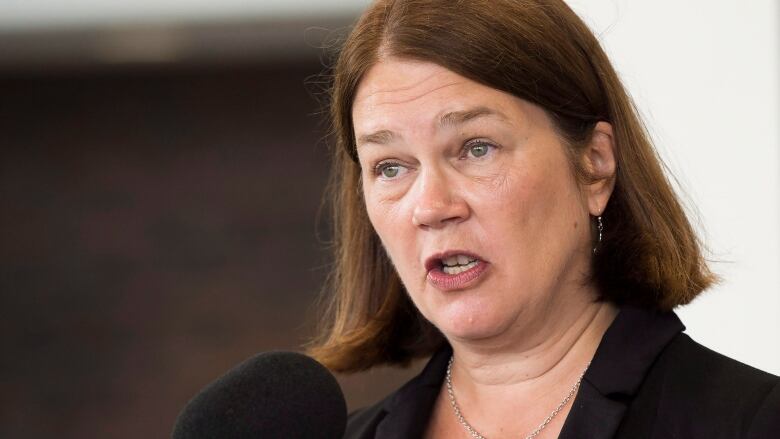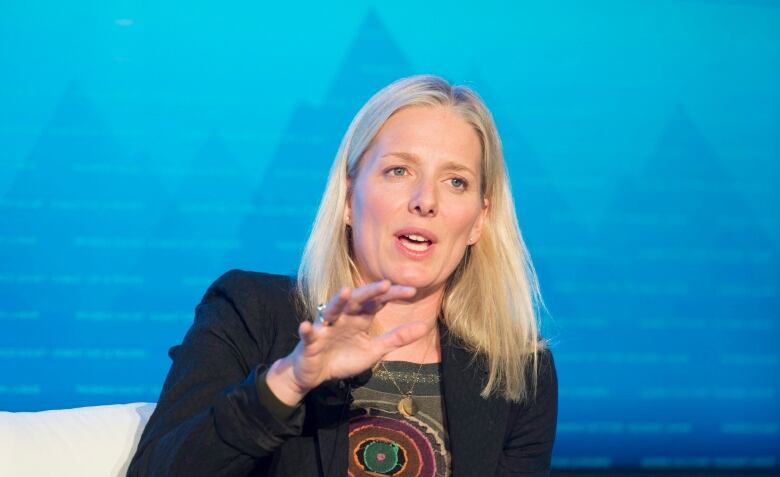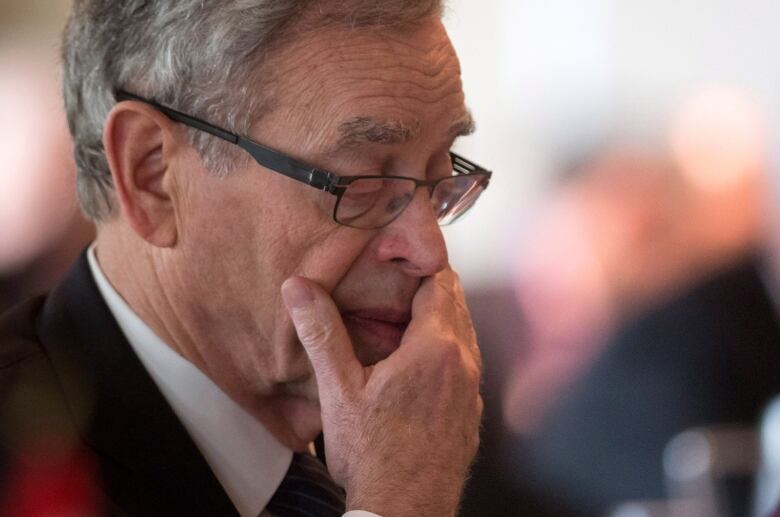Sweating the small stuff: Scandals and the strange way we count government spending
Liberal expenses aren't insignificant, even if they are only a fraction of the federal budget

"Justin Trudeau's Liberals are racking up billions of dollars in new debt on the shoulders of all Canadians. Their projected deficit for 2016 alone is $30 BILLION!" the Conservative Partylaments at LiberalDebt.ca, a website presumably created to mock the Liberal government's deficit-spending.
"Along with this big spending comes the same old Liberal entitlement."
So far, the Conservatives list 11 allegedly egregious expenses, four of which, starting with the health minister's bill for a car service, have emerged over the past week.
- McKenna calls for review after $6,600 photography bill at climate summit
- Trudeau cabinet has car trouble on the way to bigger things
- Philpott's use of Liberal-friendly car service to be probed
All told, the purported profligacy amounts to approximately $1.3million, most of which was spent setting up offices for a new ministry dedicated to infrastructure.
That, of course, is a significant sum of money. Even if it would also represent 0.004 per cent of the federal deficit projected for the current fiscal year and an infinitesimalfraction of the $317 billion the federal government plans to spend over those 12 months.
The rule of public funds might be thus: every dollar counts, but the smaller and selfish dollars are easier to count.
Keeping the politicians in check
It would be irresponsible to excuse or dismiss political expense scandals, not only because the dollars involved are public funds, but because there is obvious utility in keeping in check the politicians, governments and public officials who have access to those funds.
With no fear of public scorn, ministers might not merely be buying passes to the Air Canada lounge, but purchasing themselves actual planes, then painting the jetsgold and writing theirnames in big letters on the side. (Granted, a race to the bottom to see how cheaply we can pull off democracy also seems unwise.)
And while it'sperhaps amusing to see the Conservatives fussing and fuming in this regard their own recently departed government having spent tens of millions on self-serving television adsand their prime minister having put a total of 40 ministers on the public payroll at one point the Liberals are now perilously close to seeming to have a spending problem.

Whether the result of arrogance, carelessness or inexperience, it would seem the finer details aren't being minded consistently. Each expense is a potential waste of money, perceived or real. And each example of excess has the potential to undermine a government's ability to claim itcan be trusted to act responsibly.
Worse, for a progressive government that presumably wants voters to believe government can implement policies that accomplishgreat things, every questionablebill suggests public administration is inherently wasteful and needlessly expensive and that politicians can't be trusted.
In theory, these relatively small sums could hint at some greater lack of discipline. But even if paying too much for a car service an expense that is potentially more problematic becauseaLiberal campaign volunteer owns said service is not necessarily indicative of a government that will burn billions in pursuit of its policy goals, small excesses mightecho if larger sums are found to have been poorly spent.
But what of those larger sums?
What about the billions in other spending?
It is,as the Globe and Mail's editors argued on Tuesday, vaguelyincoherent that great amounts of energy are expended fussing over how much the environment minister paid to hire a French photographer or whether the prime minister should have brought his in-laws to the state dinnerwhile much of the rest of what the government spends the overwhelming bulk of public funds allocated each yearpasses with proportionally less fretting and mockery.
The process by which the House of Commons approves the government's spending is arcane and complicated. AndMPs sign off on billions of dollars in expenditures after only a cursory review. As much as Parliament possesses the power of the purse, it is only barely exercised, periodically assisted by the auditor general or parliamentary budget officer.
With reform and effort, that much could be improved. But even then, a multibillion-dollar program's worth can be difficult to measure and the results debatable. Whereas taxpayers are likely tofind $1,700 to be driven around for a day more obviously silly.

While claiming his department had not bothered to analyze the proposal,he fell back on a rather more optimistic projection from the Canadian Federation of Independent Business. But with Conservatives voting in favour, the bill containing the measure passed Parliament easily.
Of course, if Joe Oliver had been caught spending $550 million onorange juiceorpictures of himself, the outrage and embarrassment would have been far greater, even if he claimed his expenses had created 800 jobs in the juice or photography industries.
With the job credit, in other words, Oliver could at least claim the right intent.
But ideallywe might fret and fussabout both the price of hiring a photographer for the environment ministerand whether creating 800 jobs is worth $550 million.
Similarly, the Liberal deficit should surely be measured onmore probative terms. In the meantime, ministerial expenses and the cost of putting in a new diving board at 24 Sussexmight be flawed, if easily accessible, proxies.













_(720p).jpg)


 OFFICIAL HD MUSIC VIDEO.jpg)
.jpg)



























































































